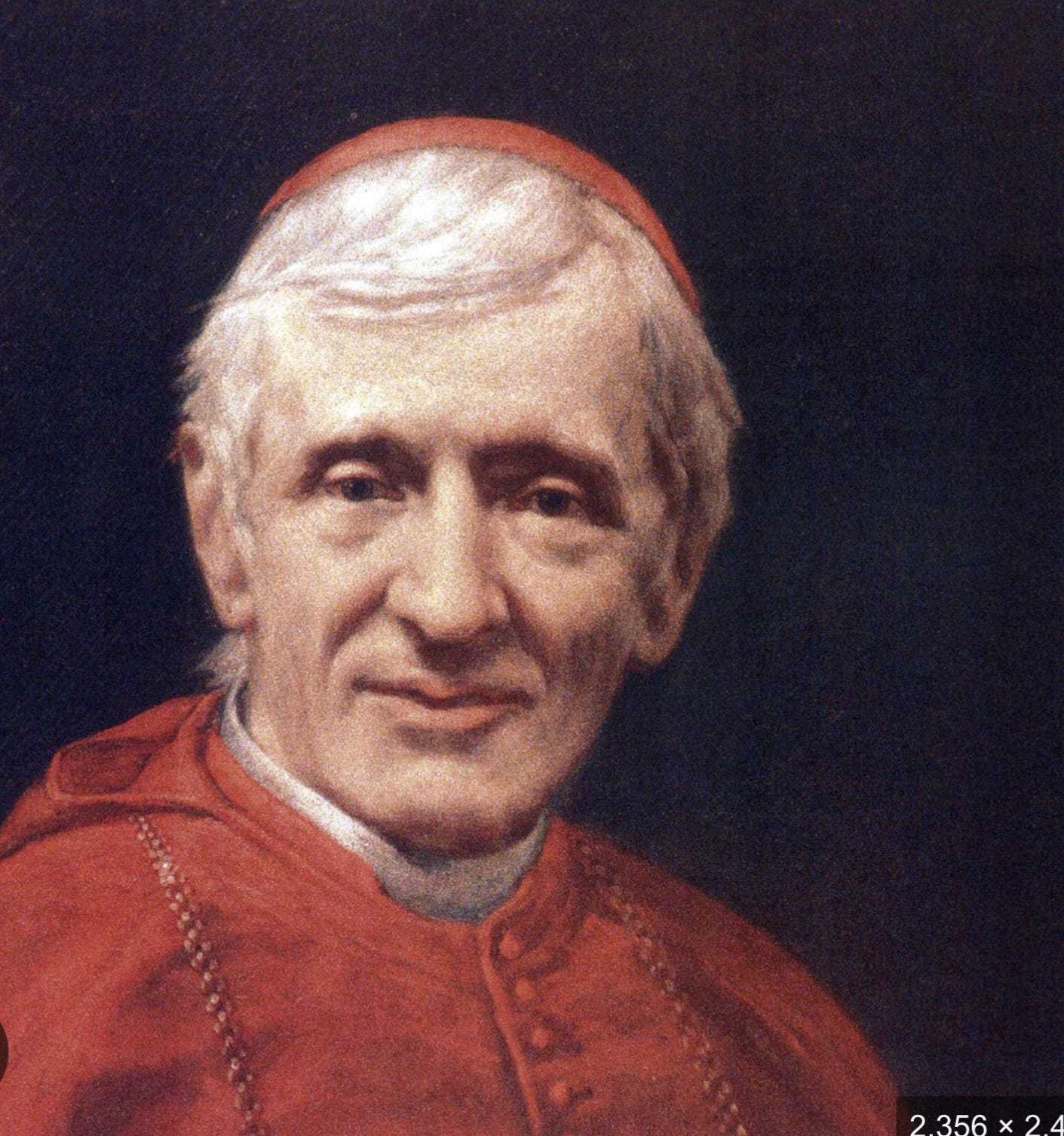English papal patron saint to the rescue - St John Henry Newman backs Pope Leo 14th.
How the elevation of St John Henry to a doctor of the Church defines the beginning of Pope Leo's pontificate for the theologically astute.
“It may be no accident that one of the first acts of this pontificate was the recognition of St John Henry Newman as doctor of the Church. His influence, his clarity, his rigour, his Catholicism and his prayers will come to the rescue of a deeply Catholic pope seeking the renewal of the Church and the transformation of the world.”
Every so often circumstances arrange themselves with a degree of joy joyful creative outcome that suggests Providence has his hand on the pulse of our affairs.
The movement to elevate since John Henry newman to be a doctor of the church started awhile ago but it came to a conclusion very shortly after Leo was elected and the case for it was presented to him and he immediately accepted it.
So suddenly, without anyone intending or planning it one of the first acts of the new point certificate was the declaration of Saint Newman as a doctor of the Church
In fact, there haven’t been very many doctors of the church in its history. They are surprisingly rare.
There are over 10,000 saints but until now only 38 doctors of the church.
So, after this rare but delightfull event has been unfolded before us is there anything that we can make of it?
How do we assess the significance of his distinctive elevation?
Does it have anything to add to the task of colouring the new pontificate?
Part of the excitement of invoking Newman for your side of the struggle, is that everyone does. Progressives get hot and sweaty over his language. “He’s one of us” they proclaim breathlessly. Conservatives concerned to guard the integrity of Catholic thinking refuse to be phased, or to give him up the fashionistas. “Not for a moment”, they warn. “Do your homework.”
There is of course something of a civil war taking place. within the Catholic Church, as the effects of an increasingly secular and anti-Christian culture ramp up the pressure in the relationship between the traditions and dogmas of the church increasingly under pressure from the diverging demands of a more secular humanistic culture beyond it. The two sides confront each other in every important areas of human life and ecclesial dogma. The tension lies between those who believe that there needs to be some compact or concord between the church and the ‘developments’ in culture and ethics we are surrounded by, and those who refuse to give way to a hostile secular philosophy.
It’s back to Chesterton all over again. We don’t want a church to change with the world. We want a church to change the world.
So why is that both sides in this conflict think they can claim St Newman for themselves and invoke him for their cause?
Who is wrong?
The answer is simple and a great relief. The progressive are wrong,. And they are wrong because they are too attuned to go with the sound bites, and they don’t do their homework.
Newman’s elevation offers a symbolic saint of exactly the right calibre to help Pope Leo reaffirm the Church in its authentic Catholicity.
In the face of some of the most serious challenges that the church has faced the hands of secular ideology, the pope needs an inspiring hero; a papal patron saint. In the present struggle between holy and profane, political and supernatural, secular and Catholic, Newman represents the deep integrity of authentic Catholicism.
Let’s ask ourselves what the three things are that he is particularly known for?
-the idea of the University,
-the pre-eminence of conscience,
-and the development of doctrine.
We might if we needed look at Newman’s pioneering work on the idea or purpose of a university and draw from its material to do with Catholic education. But we need to do something on a much broader scale.
Instead we need to look at how his educational philosophy arbitrates in the seismic conflict between the claims of absolute and those of relativism. As we never tire of mentioning, this is one of the great ideological struggles of our time. And the faith flourishes or crashes upon the outcome. The future of our culture, civilisation and faith depend on it.
The idea of ‘post-truth’ was an intellectual fashion forged in the high octane atmosphere of rarified university speculation. But it has seeped into common culture in a form of pronounced and petulant relativism.
Keep reading with a 7-day free trial
Subscribe to Catholic Unscripted to keep reading this post and get 7 days of free access to the full post archives.



